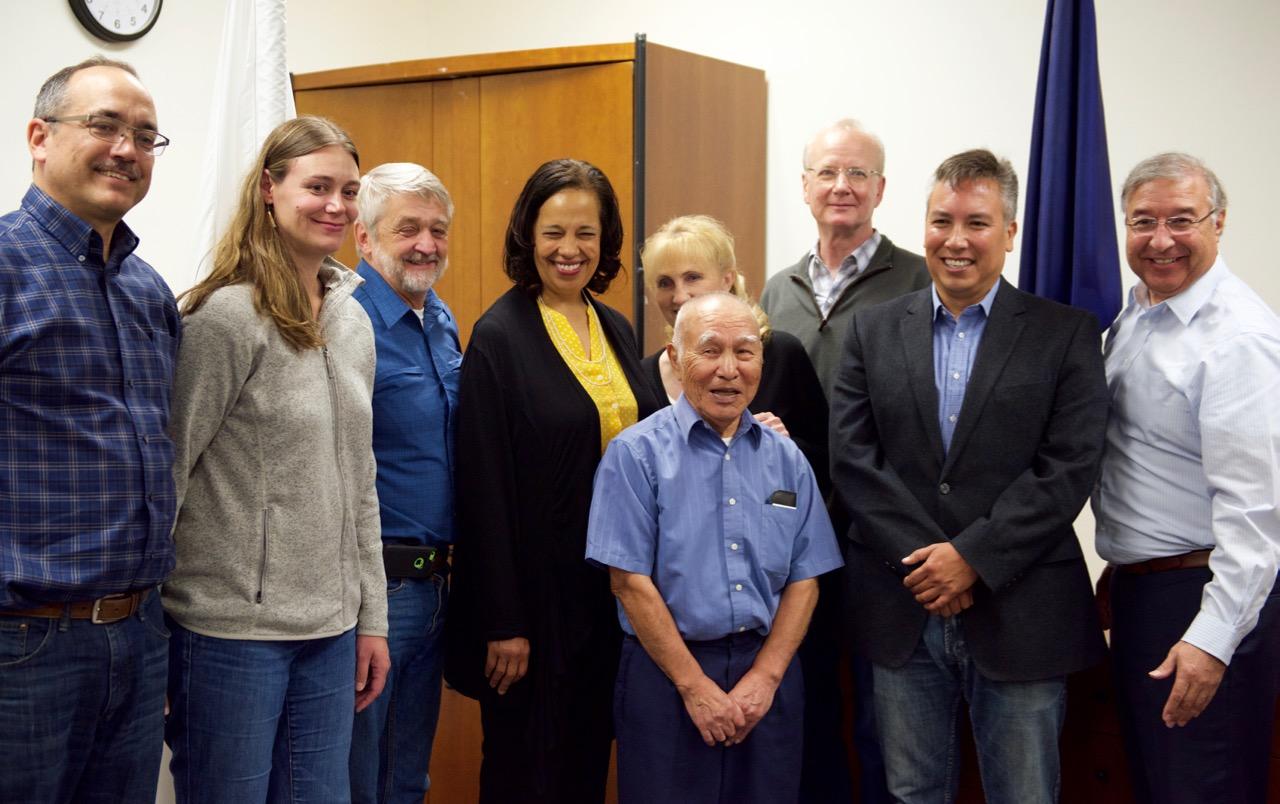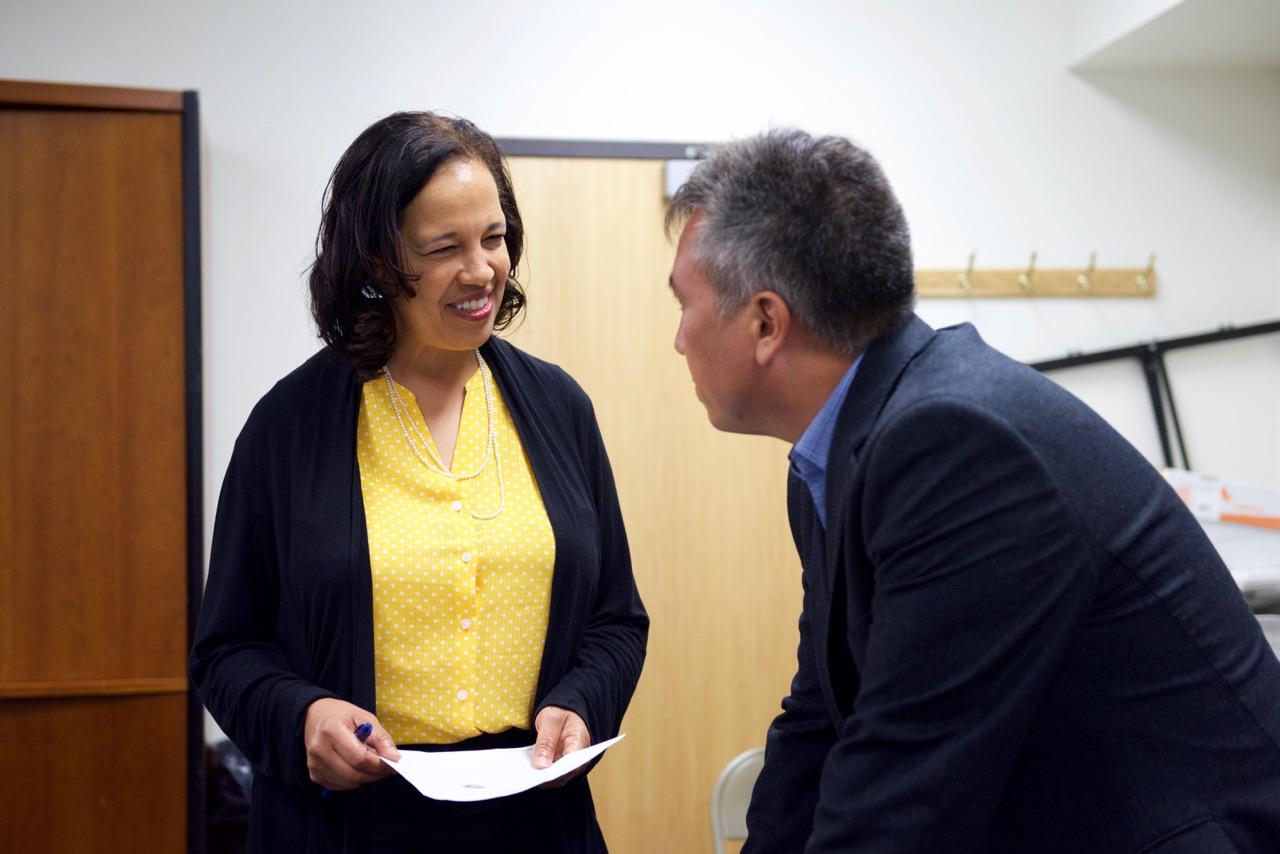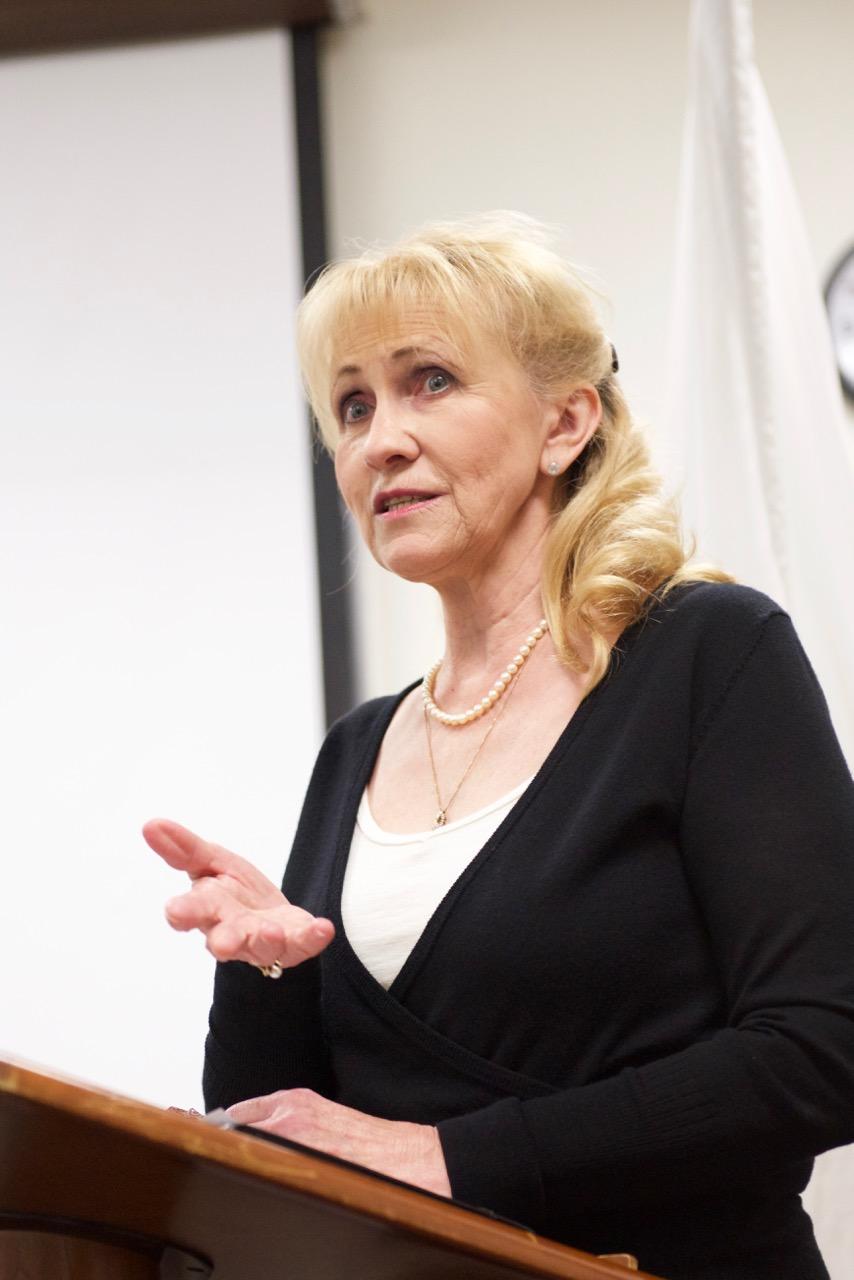A flood of federal funding is coming to rural Alaska for water and sewer projects, and a big chunk of that is going to the Yukon Kuskokwim Delta.

Lisa Mensah, U.S. Department of Agriculture Rural Development Undersecretary, arrived in Bethel from Washington D.C. on Tuesday to deliver the news.
“I have the joy of announcing a combined total of $27 million in our water and environmental programs here in rural Alaska,” Mensah said.
Let’s break down where that money is going in the Delta:
Eek will get water and sewer lines for the first time.
Toksook Bay will finish hooking up homes to its water and sewer system.
St. Mary’s will expand its waste heat recovery system, saving the community about $10,000 a year in energy costs.
The City of Bethel will get four new water trucks, three new sewer trucks, and rehabilitate its sewage lagoon, which means dredging 30 years of sewage from a tundra pond.

(Photo by Katie Basile, KYUK – Bethel)
The Yukon Kuskokwim Health Corporation will continue its program to help operate water and sewer systems across the Delta.
And seven YK Delta communities will assess their water and sewer needs and how to meet them.
David Beveridge, Project Management Director with the Alaska Native Tribal Health Consortium, said that these projects affect both the quality of life and health of rural communities.
“Studies have shown that there’s a strong relationship between infectious disease and sanitation service in rural Alaska,” Beveridge said.
For example, an infant living in a community with honey buckets in the region is five times more likely to be hospitalized from a lower respiratory infection and 11 times more likely to be hospitalized with pneumonia than an infant in the rest of the United States.

Running water also means that people wash their hands more often and use fresh water when they do.
After a series of speakers from Alaska and D.C. talked about the various projects, Dan Winkelman, CEO/President of YKHC, ended the gathering with a thank you and a reminder that there’s still a lot of work to do.
“Although we have been making progress,” Winkelman said, “I think it’s much too slow for a lot of people that are out in the villages. They’re the more remote communities now, so they’re harder to get to. Costs are going to be expensive, but we still need to endure and make sure that we finish getting the people hooked up to water and sewer. Because it does make a difference in the lives of the people.”
Winkelman said that to finish providing running water alone, about 1,500 YK Delta homes would have to be connected.
Anna Rose MacArthur is a reporter at KYUK in Bethel.




